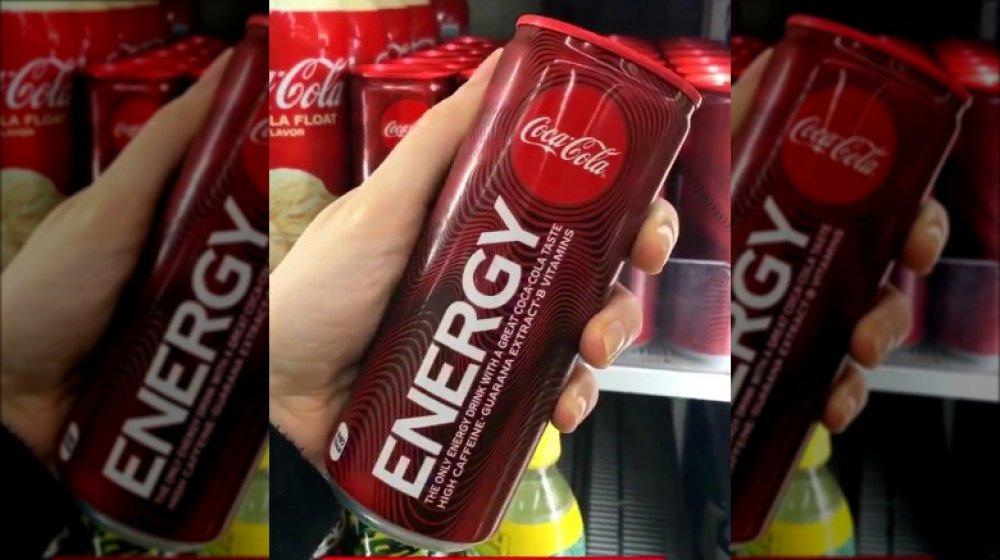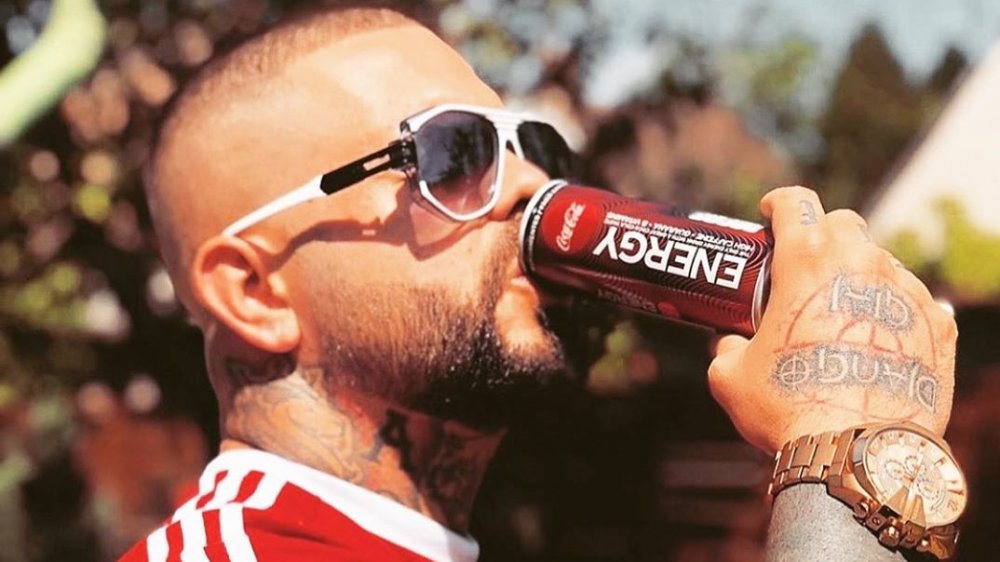Coca-Cola Energy: What You Should Know Before You Drink One
Coca-Cola Energy, which Business Insider reveals as the company's first Coke-branded non-soda drink, was quietly released in January prior to its grand public launch via Super Bowl promotions and a commercial that ran during the big game (via KTAB). It is available in four different varieties: Coca-Cola Energy, Coca-Cola Energy Zero Sugar, Coca-Cola Energy Cherry, and Coca-Cola Energy Cherry Zero Sugar.
Since Coca-Cola actually owns 16.7 percent of rival energy drink maker Monster, Monster tried to prevent their parent company from coming up with a competing product. The issue was under question since 2018, but in July 2019 arbiters determined that developing and marketing Coca-Cola Energy would not violate the terms of the existing contract between Coca-Cola and Monster, so this new beverage was given the green light.
Although new to the U.S. in 2020, CNN reports that Coca-Cola Energy was already available overseas in its original and sugar-free versions. Both cherry-flavored varieties, however, were developed for the U.S. market.
What's in Coca-Cola Energy?
The nutritional data from Coca-Cola's company website shows that each 12-ounce can of Coca-Cola Energy contains 114 mg of caffeine. Caffeine Informer offers the further explanation that this amount is about three times that of regular Coke, but falls somewhere on the spectrum between Red Bull (which has just 80 mg) and Monster (which comes in at 160 mg). Each type of Coke Energy contains B vitamins and guarana, a Brazilian plant extract high in caffeine and also contains additional stimulants and antioxidants (via Healthline).
The original and cherry varieties of Coca-Cola Energy each have 140 calories and 39 grams of carbohydrates. Both the zero sugar and zero sugar cherry drinks have no calories or carbs.
How does Coca-Cola Energy taste?
Gizmodo not only taste-tested three of the four varieties (unfortunately, they were not able to get ahold of the Coke Energy Zero Cherry), but compared them head-to-head against Monster and Red Bull. For both of the non-diet flavors, the verdict was pretty positive... in fact, according to the title of their review piece, Coke Energy made them realize that "other energy drinks tasted like ass." The reason behind Coke's big win in the flavor department? The fact that this beverage is actually attempting to taste more like a soda, with the cola flavor and the high level of carbonation helping to hide that medicine-y taste that you usually get from guarana.
Unfortunately, the lack of sugar (or rather, high fructose corn syrup) in the Coke Energy Zero didn't do quite such a good job of hiding the guarana flavor, but Gizmodo's reviewer still found it to be a decent enough diet drink, far superior to Monster's calorie-free option and about on par with Red Bull's. When it came to the full-calorie versions, however, those were deemed the clear winners.


